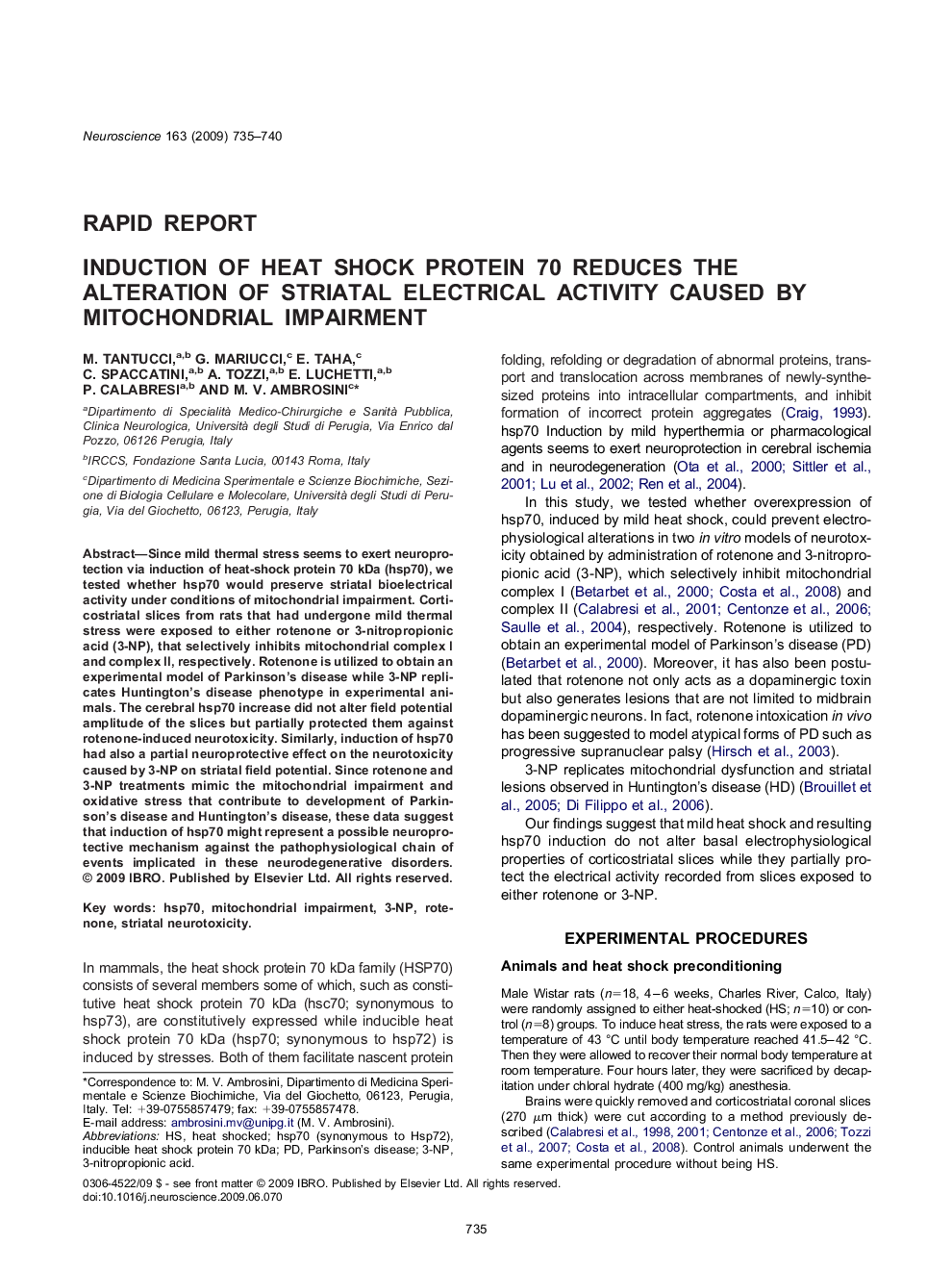| Article ID | Journal | Published Year | Pages | File Type |
|---|---|---|---|---|
| 4340050 | Neuroscience | 2009 | 6 Pages |
Since mild thermal stress seems to exert neuroprotection via induction of heat-shock protein 70 kDa (hsp70), we tested whether hsp70 would preserve striatal bioelectrical activity under conditions of mitochondrial impairment. Corticostriatal slices from rats that had undergone mild thermal stress were exposed to either rotenone or 3-nitropropionic acid (3-NP), that selectively inhibits mitochondrial complex I and complex II, respectively. Rotenone is utilized to obtain an experimental model of Parkinson's disease while 3-NP replicates Huntington's disease phenotype in experimental animals. The cerebral hsp70 increase did not alter field potential amplitude of the slices but partially protected them against rotenone-induced neurotoxicity. Similarly, induction of hsp70 had also a partial neuroprotective effect on the neurotoxicity caused by 3-NP on striatal field potential. Since rotenone and 3-NP treatments mimic the mitochondrial impairment and oxidative stress that contribute to development of Parkinson's disease and Huntington's disease, these data suggest that induction of hsp70 might represent a possible neuroprotective mechanism against the pathophysiological chain of events implicated in these neurodegenerative disorders.
